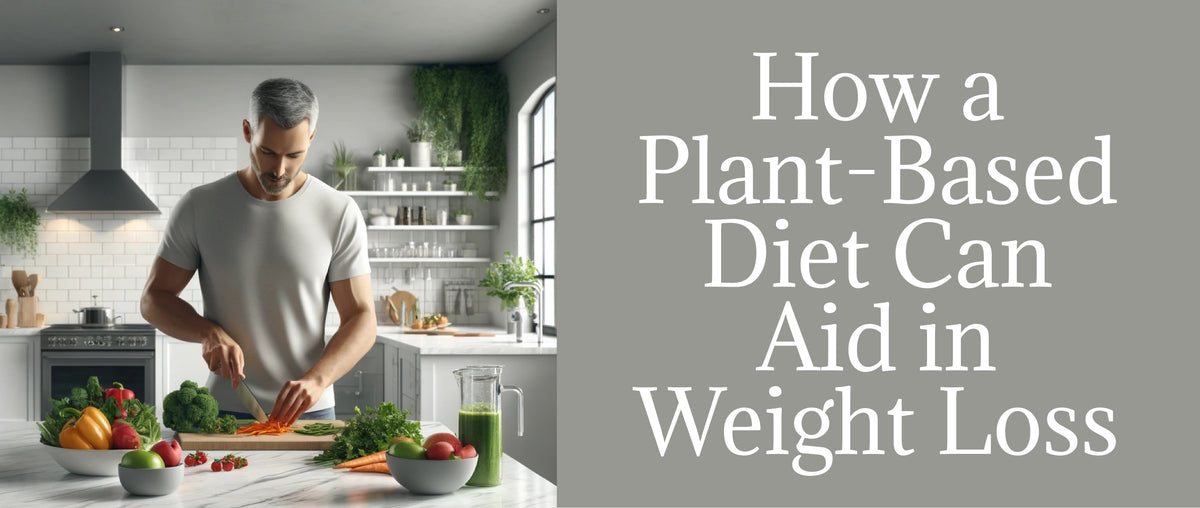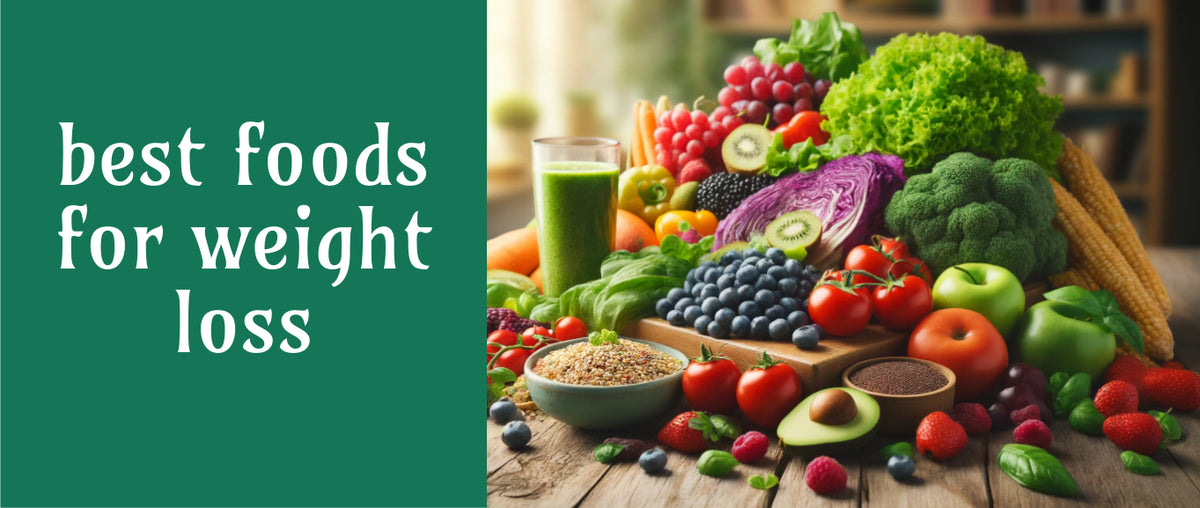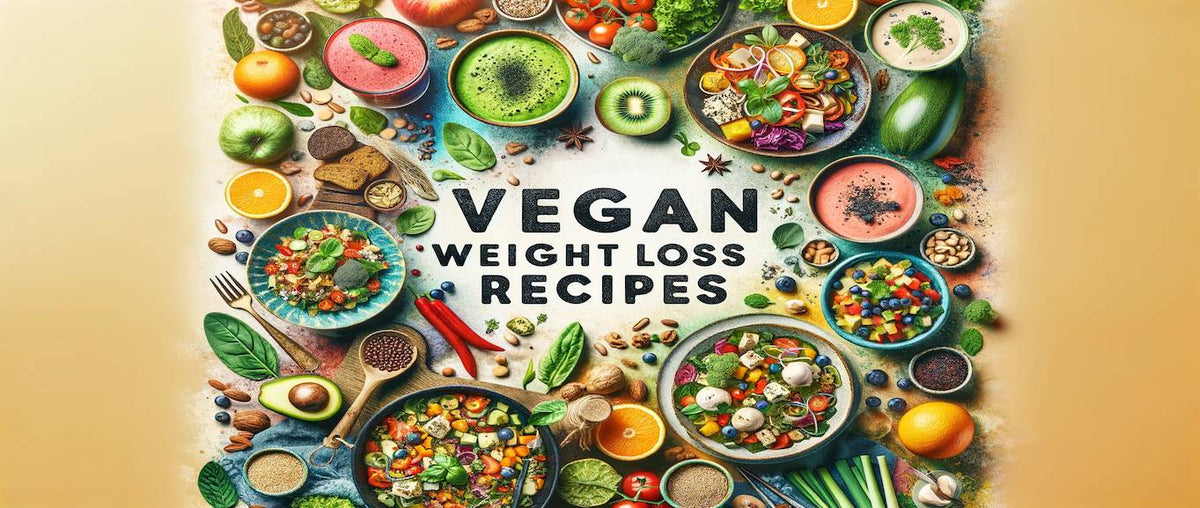How a Plant Based Diet Can Aid in Weight Loss
A plant based diet is gaining popularity for its health benefits, particularly for best foods for weight loss. Incorporating more plant based foods into your diet can help you shed unwanted pounds, improve your overall health, and reduce your environmental footprint.
Key Takeaways
- Plant-based diets are high in fiber and low in unhealthy fats, aiding in weight loss.
- Scientific studies support the effectiveness of plant-based diets for weight management.
- Practical tips can help ease the transition to a plant-based lifestyle.
- Homemade vegan milk is cost-effective, higher in quality, and environmentally friendly.
What is a Plant-Based Diet?
A plant-based diet focuses on foods primarily from plants. This includes not only fruits and vegetables, but also nuts, seeds, oils, whole grains, legumes, and beans. It doesn’t necessarily mean that you are vegetarian or vegan diet and completely give up meat or animal products. Rather, you are proportionately choosing more of your foods from plant sources.
Types of Plant-Based Diets
- Vegan: Excludes all animal products.
- Vegetarian: Excludes meat but may include eggs and dairy.
- Flexitarian: Primarily plant-based with occasional meat and animal products.
Common Misconceptions
- Protein Deficiency: It’s a myth that plant-based diets cannot provide sufficient protein. Many plant based foods are high in protein, such as beans, lentils, and quinoa.
- Limited Food Choices: A plant-based diet can be diverse and flavorful with the right recipes and planning.

Nutritional Benefits of a Plant-Based Diet
High in Fiber
Fiber aids in digestion, helps maintain blood sugar levels, and keeps you feeling full longer, which can help prevent overeating and support weight loss.
Rich in Essential Nutrients
Plant based foods are packed with vitamins, minerals, antioxidants, and phytochemicals, all of which are beneficial for health.
Low in Unhealthy Fats
A plant-based diet is typically lower in saturated fats and cholesterol, promoting heart health and reducing the risk of chronic diseases.
Mechanisms of Weight Loss on a plant based diet
Caloric Density and Satiety
Caloric density refers to the number of calories in a given volume or weight of food. Foods that are low in caloric density, such as fruits and vegetables, can be consumed in larger quantities without consuming a lot of calories, helping you feel full and satisfied.
Metabolic Boost
Plant-based diets can help boost your metabolism due to their high content of complex carbohydrates and fiber, which require more energy to digest.
Reduced Caloric Intake
Naturally, a plant-based diet tends to be lower in calories, which can contribute to weight loss without the need for calorie counting.
Scientific Evidence Supporting Weight Loss on a Plant-Based Diet
Studies and Research
- A study published in the Journal of the Academy of Nutrition and Dietetics found that individuals following a vegan diet had a lower body mass index (BMI) compared to those on other diets.
- Research from the American Journal of Clinical Nutrition showed that vegetarian and vegan diets are associated with weight loss and lower body mass index (BMI).
Comparative Analysis
Plant-Based vs. Omnivorous Diets: Studies indicate that people on plant-based diets tend to lose more weight and maintain a healthier weight compared to those on omnivorous diets.
Practical Tips for Adopting a Plant-Based Diet
Transitioning to Plant-Based Eating
- Start Slow: Gradually replace meat with plant-based proteins like beans, lentils, and tofu.
- Experiment with New Recipes: Try new plant-based recipes to discover new flavors and textures.
- Find Support: Join online communities or local groups for support and recipe ideas.
Meal Planning and Recipes
Sample Meal Plan:
- Breakfast: Oatmeal with fresh fruits and nuts.
- Lunch: Quinoa salad with vegetables and chickpeas.
- Dinner: Stir-fried tofu with broccoli and brown rice.
Easy and Nutritious Recipes:
- Chickpea Curry: Chickpeas simmered in a tomato and coconut milk sauce with spices.
- Vegan Chili: A hearty chili made with beans, tomatoes, and vegetables.
How to Make Oat Milk
Step-by-Step Guide
1. Ingredients: 1 cup rolled oats, 4 cups water, a pinch of salt.
2. Blend: Combine all ingredients in a blender and blend until smooth.
3. Strain: Strain the mixture through a nut milk bag or fine mesh strainer to remove the pulp.
4. Store: Store the Oat Milk in a sealed container in the refrigerator for up to 5 days.
Benefits of Oat Milk
- High in Fiber: Supports digestion and weight loss.
- Low in Calories: A great low-calorie food option.
How to Make Almond Milk
Step-by-Step Guide
1. Ingredients: 1 cup raw almonds, 4 cups water, a pinch of salt.
2. Soak: Soak the almonds in water overnight.
3. Blend: Drain and rinse the almonds, then blend with 4 cups of fresh water.
4. Strain: Strain through a nut milk bag or fine mesh strainer.
5. Store: Store in a sealed container in the refrigerator for up to 5 days.
Benefits of Almond Milk
- Rich in Vitamin E: Good for skin health.
- Low in Carbs: Suitable for low-carb diets.
Benefits of Making Homemade Vegan Milk
Cost-Effectiveness
It’s a lot cheaper to make your own vegan milk than buying store-bought versions.
Quality Improvement
The quality is way better when you make it at home, as you can control the ingredients and avoid preservatives.
Environmental Impact
You will avoid a lot of waste by using reusable containers and reducing packaging waste.
What I Personally Use
In my journey towards a healthy diet, I’ve found homemade almond milk to be my go-to for smoothies and baking, while oat milk is perfect for coffee and cereal. Both are great additions to a weight gain diet plan and can be incorporated into a variety of recipes for muscle recovery and healthy eating.
Success Stories and Testimonials
Real-Life Examples
- Jane Doe: Lost 30 pounds in 6 months by switching to a plant-based diet.
- John Smith: Improved his cholesterol levels and lost 20 pounds in 4 months on a plant-based diet.
Common Mistakes to Avoid
Nutritional Pitfalls
- Not Getting Enough Protein: Ensure you include high-protein plant foods like beans, lentils, and tofu.
- Ignoring Vitamin B12: Consider fortified foods or supplements for B12.
Ensuring Balanced Nutrition
- Diverse Food Choices: Eat a variety of foods to get all necessary nutrients.
- Proper Meal Planning: Plan meals to include a balance of protein, carbs, and fats.
Conclusion
Switching to a plant based diet can be a powerful way to achieve weight loss and improve overall health. By focusing on whole, unprocessed foods and being mindful of nutritional needs, you can enjoy the benefits of a plant-based lifestyle.
Craving a delicious vegan meal? Look no further! We've got a guide to the best vegan restaurants in India, ready to help you discover amazing plant-based eats in your city.










